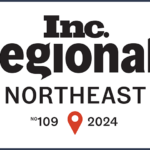The Government Released Two Acts: One to Provide Paid Leave and One to Help Families and Businesses Stay Afloat.
It is no secret the Coronavirus has turned business (and the world) upside down. Unemployment is at an all-time high. It is even higher than it was during the Great Depression. Businesses are forced to lay off employees in droves or close their doors for good.
To help ease the financial pain for business owners and employees, the federal government released two Acts: The CARES Act and the Family First Coronavirus Response Act (FFCRA). Read below to learn more about these acts and the different needs they fill.
| Benefits | FFCRA | CARES |
|---|---|---|
| Pays sick leave for employees taking care of family with Coronavirus or similar symptoms | ||
| Provides Family Leave Pay to parents who must care for children whose schools are closed | ||
| Provides sick pay for employees diagnosed with Coronavirus or similar symptoms. | ||
| Provides Payroll Protection for employers | ||
| Provides money to help small businesses economically affected by coronavirus | ||
| A loan that must be repaid | ||
| A federal grant to employers | ||
| Provides stimulus payouts to families across the country |
What Is the Family First Coronavirus Relief Act?
The FFCRA is the government’s effort to help families obtain financial relief during this unprecedented time. The Act is divided into two parts:
- Emergency Paid Sick Leave Act (EPSLA)
- Emergency Family and Medical Leave Expansion Act (EFMLEA)
The EPSLA provides two weeks of paid leave to employees who:
- Must care for a person who has coronavirus or similar symptoms
- Must care for themselves because they have Coronavirus or similar illnesses
- Must care for a child whose daycare or school is closed
The EFMLEA provides up to 80% pay for up to 12 weeks to parents who must stay home to care for a child whose school or daycare is closed due to Coronavirus
The employer receives a refundable tax deduction for every employee receiving these benefits. Therefore, it is a win-win. Employers are refunded by the government in the form of a tax benefit and employees get the money they need if they must take the time to heal, help others heal, or care for a child who is out of school and daycare.
What Is the CARES Act?
The CARES Act is comprised of three parts:
- The Paycheck Protection Program (PPP)
- SBA Economic Injury Disaster Loan (EIDL)
- The Economic Impact Stimulus Payment
The PPP and EIDL are offered through the Small Business Association (SBA). Employers must file an applicant with an SBA loan provider, such as a local bank or credit union.
The PPP is a payroll loan that may be forgiven if certain criteria are met, such as:
- You must use the loan to pay payroll to your employees
- You may not reduce payroll hours for any employee
- You must reapply for forgiveness and provide proof of the above
Under the loan provision, you are not allowed to reduce salary by more than 25% for any employee who made $100,000 or more in 2019. Furthermore, you are allowed to reinstate employees through June 30, 2020, if they were laid off between February 15 and April 26, 2020.
You do not need to guarantee the loan and cannot be denied even if you have another loan outstanding for any other reason. All you need is a good faith certification that you intend to use the loan for payroll.
The EIDL is also an SBA loan. Only $10,000 out of a potential $2,000,000 can be issued as a possible federal grant. This $10,000 may not need to be repaid to the government. However, the remaining amount borrowed will be repaid to the federal government. In order to qualify, you must be in an area declared a disaster area, such as New Jersey.
This loan has the following benefits, different from any standard SBA loan:
- 3.75% APR or 2.75% APR for non-profits
- Deferred payments for 12 months
- Up to $2 million available per business for economic injury
- Funds may be used for all fixed debt, payroll, accounts payable, other outstanding bills
Finally, the CARES Act offers individuals and families an Economic Impact Payment, also known as the stimulus payment. The intent of the payment is to provide people with a little extra income for at least one month that can be used to pay bills, make purchases, or otherwise put back into the economy.
Payments of $1,200 will be provided to:
- Individuals who received an adjusted gross income in 2018 or 2019 of $75,000 or less
- Individuals who received an adjusted gross income in 2018 or 2019 of $112,000 or less
Payments of $2,400 will be provided to married couples whose adjusted gross income in a joint return was $150,000 or less.
This package also includes $500 per child under 17 who was included on your federal tax return in 2018 or 2019 (the last year for which you filed federal taxes).
The stimulus payment will be reduced for the following:
- Individuals who filed single or married separately with an adjusted gross income between $75,000 and $99,000
- Individuals who filed as head of the household with an adjusted gross income between $112,000 and $136,500
- Couples who filed married jointly with an adjusted gross income of $150,000 and $198,000
The stimulus payment will be paid directly to individuals through direct deposit or a mailed check to their homes. People who filed tax returns for 2019 or 2018 and had tax returns directly deposited in their bank account may see a federal deposit in their accounts as early as April 13, 2020. Checks will take a few more weeks to mail to recipients.
Contact Our Experienced Human Resources Team to Learn How to Stay Afloat During the Coronavirus Pandemic.
The Coronavirus pandemic has changed business as we know it. As the government continues to release packages to aid businesses and individuals, our dedicated staff at Workplace HCM are tirelessly working to understand these packages and help you get the help you need.
To learn more about how to qualify for these loans and benefits, contact us today or give us a call at 856.334.9711.




